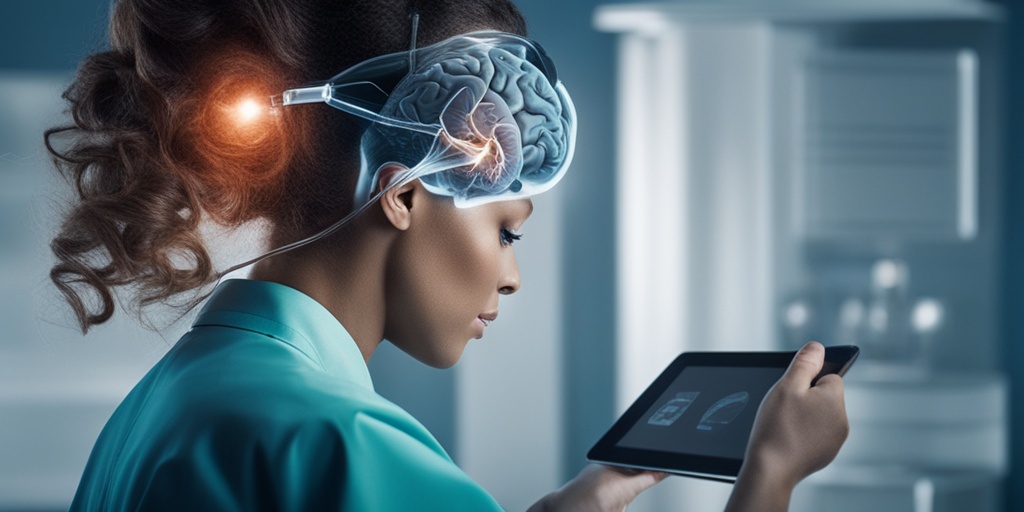What Is Argininemia?
Argininemia is a rare genetic disorder that affects the breakdown of amino acids in the body. It’s a condition that can have a significant impact on a person’s quality of life, and it’s essential to understand what it is, its symptoms, and how it’s diagnosed and treated.
Argininemia Definition
Argininemia is a type of amino acid disorder, specifically a urea cycle disorder. It occurs when the body is unable to break down the amino acid arginine, which is found in many protein-rich foods. This leads to a buildup of arginine and its byproducts in the blood, causing a range of symptoms and health problems.
In a healthy body, the enzyme arginase is responsible for breaking down arginine into ornithine and urea. However, in people with argininemia, this enzyme is either missing or not functioning correctly, leading to the accumulation of arginine in the blood.
Argininemia is an autosomal recessive disorder, which means that a person needs to inherit two copies of the mutated gene (one from each parent) to develop the condition. If a person inherits only one copy of the mutated gene, they will be a carrier of the condition but will not develop symptoms themselves.
According to Genereviews, argininemia affects approximately 1 in 350,000 to 1 in 1,000,000 births worldwide. It’s a rare condition, but it’s essential to raise awareness and provide support to families affected by it.
If you or a loved one has been diagnosed with argininemia, it’s crucial to work with a healthcare team to manage the condition and prevent complications. In the next sections, we’ll explore the symptoms, diagnosis, and treatment options for argininemia.
👉 Stay tuned for more information on argininemia symptoms, diagnosis, and treatment!

Argininemia Symptoms
Argininemia is a rare genetic disorder that affects the breakdown of amino acids in the body. It’s characterized by a deficiency of the enzyme arginase, which is responsible for converting arginine into ornithine and urea. As a result, arginine builds up in the blood, leading to a range of symptoms that can vary in severity and impact different aspects of a person’s life.
Neurological Symptoms
One of the most common and debilitating symptoms of argininemia is neurological impairment. This can manifest in various ways, including:
- Developmental delays: Children with argininemia may experience delayed speech, language, and motor skills development.
- Seizures: Recurrent seizures are a common symptom of argininemia, which can be challenging to manage and control.
- Muscle weakness: Weakness or floppiness of the muscles, particularly in the arms and legs, can make everyday activities difficult.
- Spasticity: Stiffness and spasms in the muscles can lead to mobility issues and discomfort.
Other Symptoms
In addition to neurological symptoms, people with argininemia may experience:
- Gastrointestinal issues: Vomiting, diarrhea, and abdominal pain are common complaints.
- Fatigue: Elevated arginine levels can lead to feelings of exhaustion and lethargy.
- Growth retardation: Argininemia can affect growth and development, leading to short stature and delayed puberty.
- Intellectual disability: In some cases, argininemia can cause intellectual disability, which can range from mild to severe.
It’s essential to note that each person with argininemia may experience a unique combination of symptoms, and their severity can vary greatly. Early diagnosis and treatment can help alleviate some of these symptoms and improve quality of life 🌟.
Argininemia Causes and Risk Factors
Argininemia is a genetic disorder caused by mutations in the ARG1 gene, which codes for the arginase enzyme. These mutations lead to a deficiency of arginase, resulting in the accumulation of arginine in the blood.
Genetic Inheritance
Argininemia is an autosomal recessive disorder, meaning that a person needs to inherit two copies of the mutated gene (one from each parent) to develop the condition. If both parents are carriers of the mutated gene, there is a 25% chance that each child will inherit two copies of the gene and develop argininemia 🤝.
Risk Factors
Certain ethnic groups and populations are more likely to be affected by argininemia due to the higher frequency of the mutated gene in these communities. These include:
- African Americans: Argininemia is more common in people of African American descent.
- French Canadians: The disorder is also more prevalent in people of French Canadian ancestry.
While there is no cure for argininemia, early diagnosis and treatment can help manage symptoms and improve quality of life. If you suspect that you or a family member may be affected by argininemia, consult with a healthcare professional for guidance and support 💕.

Argininemia Diagnosis
Argininemia is a rare genetic disorder that affects the breakdown of amino acids in the body. Diagnosing argininemia can be a complex process, requiring a combination of clinical evaluation, laboratory tests, and genetic analysis. In this section, we’ll delve into the diagnostic process for argininemia and what to expect.
Clinical Evaluation
The diagnostic journey often begins with a thorough clinical evaluation by a healthcare professional. This involves a physical examination, medical history, and a review of symptoms. Infants and newborns may exhibit symptoms such as:
- Vomiting or refusal to feed
- Lethargy or lack of energy
- Seizures or tremors
- Developmental delays
In older children and adults, symptoms may include:
- Muscle weakness or wasting
- Coordination problems or unsteadiness
- Speech difficulties or delayed speech development
- Intellectual disability or learning difficulties
Laboratory Tests
Laboratory tests are essential in diagnosing argininemia. These may include:
- Blood tests to measure arginine levels and other amino acids
- Urine tests to detect elevated levels of arginine and other metabolites
- Enzyme assays to measure the activity of the arginase enzyme
These tests can help identify the characteristic pattern of amino acid imbalances and enzyme deficiencies associated with argininemia.
Genetic Analysis
Genetic testing is crucial in confirming the diagnosis of argininemia. This may involve:
- Gene sequencing to identify mutations in the ARG1 gene
- Genetic counseling to assess the risk of passing the condition to offspring
Genetic analysis can help identify the specific genetic mutation causing the condition, which can inform treatment and management strategies.
Argininemia Treatment Options
While there is no cure for argininemia, various treatment options can help manage the condition and alleviate symptoms. The goal of treatment is to reduce arginine levels, manage amino acid imbalances, and support overall health and development.
Dietary Management
A key aspect of argininemia treatment is dietary management. This involves:
- A low-protein diet to reduce arginine intake
- Supplementation with amino acid formulas that are low in arginine
- Restricting foods high in arginine, such as nuts, seeds, and chocolate
A healthcare professional or registered dietitian can help develop a personalized diet plan that meets the individual’s nutritional needs while minimizing arginine intake.
Medications and Supplements
Medications and supplements may be prescribed to help manage symptoms and support overall health. These may include:
- Arginine-reducing medications, such as sodium benzoate
- Vitamin and mineral supplements to address deficiencies
- Anticonvulsant medications to manage seizures
It’s essential to work closely with a healthcare professional to determine the most effective treatment plan and monitor progress.
Remember, every individual with argininemia is unique, and treatment plans should be tailored to meet their specific needs and circumstances. With proper diagnosis, treatment, and management, individuals with argininemia can lead fulfilling lives and reach their full potential 💪.

Argininemia Diet and Nutrition
When it comes to managing argininemia, a well-planned diet and nutrition play a crucial role in reducing the severity of symptoms and preventing complications. In this section, we’ll explore the dietary recommendations and nutritional considerations for individuals with argininemia.
Protein Restriction
One of the primary goals of an argininemia diet is to restrict protein intake. This is because arginine, a non-essential amino acid, is found in high amounts in protein-rich foods. By limiting protein consumption, individuals with argininemia can reduce the amount of arginine that builds up in their bodies. Aim for a daily protein intake of 0.5-1 gram per kilogram of body weight, spread out over 3-4 meals.
Essential Amino Acids
While protein restriction is necessary, it’s equally important to ensure that the body receives essential amino acids (EAAs) to maintain overall health. EAAs are amino acids that the body cannot produce on its own and must obtain through diet or supplements. Supplementing with EAAs can help reduce arginine levels and alleviate symptoms.
Arginine-Free or Low-Arginine Foods
Foods that are naturally low in arginine or arginine-free can be a great addition to an argininemia diet. Some examples include:
- Fruits: apples, bananas, grapes, oranges
- Vegetables: broccoli, carrots, green beans, peas
- Grains: rice, corn, oats
- Fats: olive oil, coconut oil
Nutritional Supplements
In addition to a balanced diet, nutritional supplements can help fill any nutritional gaps and support overall health. Some beneficial supplements for individuals with argininemia include:
- Vitamin B6: helps reduce arginine levels
- Vitamin B12: supports energy production and nerve function
- Omega-3 fatty acids: promotes heart health and reduces inflammation
Argininemia Complications
If left untreated or poorly managed, argininemia can lead to a range of complications that can significantly impact quality of life. It’s essential to be aware of these potential complications to ensure timely intervention and prevention.
Neurological Complications
Argininemia can cause a buildup of ammonia in the blood, leading to neurological complications such as:
- Seizures
- Developmental delays
- Intellectual disability
- Behavioral problems
Metabolic Complications
Argininemia can also disrupt metabolic processes, leading to complications such as:
- Hypoglycemia (low blood sugar)
- Hyperammonemia (high blood ammonia levels)
- Metabolic acidosis (excessive acidity in the blood)
Other Complications
In addition to neurological and metabolic complications, argininemia can also lead to:
- Growth retardation
- Weak muscle tone
- Respiratory problems
- Increased risk of infections
By understanding the potential complications of argininemia, individuals can take proactive steps to manage their condition and reduce the risk of these complications. 💊

Frequently Asked Questions about Argininemia
What is Argininemia?
Argininemia is a rare genetic disorder caused by a deficiency of the enzyme arginase. This enzyme is necessary for the breakdown of amino acids in the body. The lack of arginase leads to the accumulation of arginine in the blood, which can cause a range of symptoms and health problems.
What are the symptoms of Argininemia?
The symptoms of Argininemia can vary in severity and may include:
- Developmental delays
- Seizures
- Muscle weakness
- Loss of coordination
- Vision problems
- Hearing loss
- Intellectual disability
How is Argininemia diagnosed?
Argininemia can be diagnosed through a combination of clinical evaluation, laboratory tests, and genetic testing. These may include:
- Blood tests to measure arginine levels
- Urine tests to measure orotic acid levels
- Genetic testing to identify mutations in the ARG1 gene
What is the treatment for Argininemia?
Treatment for Argininemia typically involves a combination of dietary restrictions and supplements. This may include:
- A low-protein diet to reduce arginine intake
- Supplements to help reduce arginine levels in the blood
- Medications to manage symptoms such as seizures
What is the prognosis for Argininemia?
The prognosis for Argininemia varies depending on the severity of the condition and the effectiveness of treatment. With proper management, many individuals with Argininemia can lead normal or near-normal lives. However, some may experience ongoing health problems and developmental delays.
Is Argininemia inherited?
Yes, Argininemia is an inherited disorder caused by mutations in the ARG1 gene. It is inherited in an autosomal recessive pattern, meaning that a child must inherit two copies of the mutated gene (one from each parent) to develop the condition.
Can Argininemia be prevented?
There is no way to prevent Argininemia, as it is a genetic disorder. However, genetic testing and counseling can help identify families at risk and allow for early intervention and treatment.
What research is being done on Argininemia?
Researchers are working to develop new treatments and therapies for Argininemia, including gene therapy and enzyme replacement therapy. Additionally, studies are being conducted to better understand the causes and mechanisms of the disorder.
Where can I find more information on Argininemia?
There are several resources available for individuals and families affected by Argininemia, including:
- The National Institutes of Health (NIH)
- The Genetic and Rare Diseases Information Center (GARD)
- The Argininemia Foundation
We hope this FAQ has been helpful in providing information on Argininemia. If you have any further questions or concerns, please don’t hesitate to reach out to a healthcare professional or a patient organization. 💊




